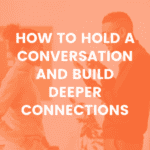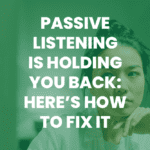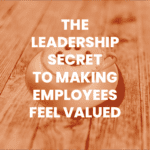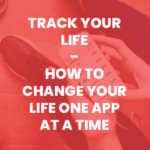Table of Contents
“Soft skills” is one of those terms that you usually only ever hear when talking about job-hunting and resumes.
But here’s a little secret: If you can take on some of the traits on this soft skills list, it’s almost guaranteed to bring you major fortune in life, well beyond the workplace.
What are soft skills, though? And how are they different from hard skills? And how can you develop them to increase your chances of getting a great job and improving your everyday life?
That’s what this article is all about.
What are soft skills?
Soft skills are the abilities we develop over our lives that help us interact with other people effectively and positively, follow through with goals, and overcome obstacles big and small.
In other words, they’re the personality traits that make your life easier, and make other people want to be around you (be they employers, friends, or partners).
The definition of soft skills isn’t always tied directly to work—that’s one of the things that sets hard skills and soft skills apart.
Things like communicating effectively, or being punctual and reliable. These things are applicable to finding and keeping a job, and they will definitely help you stand out in an interview.
But these personality traits can also help you achieve life goals and strengthen relationships, so it pays (literally and figuratively) to develop your soft skills, just as you’d develop any other skill.
Soft skills vs. hard skills
To get a better understanding of what soft skills are, let’s compare them to their antonym, “hard skills.”
Hard skills are more practical skills, and typically you’d pick them up at college (or whatever you to do instead of college), on a job, or via direct training from a mentor.
When you’re looking for employment, you’ll often see companies list out the hard skills required right on the job posting. Hard skills usually fall into categories like technical skills, marketing skills, computer skills, and so on.
Here is a list of hard skills vs. soft skills:

| Soft Skills Examples | Hard Skills Examples |
|---|---|
| Time management | Photoshop |
| Effective Communication | Project Management |
| Resiliency | Social Media Management |
| Organizational Skills | Coding Languages |
| Open-Mindedness | Search Engine Optimization |
Soft skills list: The 8 that really matter and how to master them
Here’s the big question: How do you actually develop soft skills if they don’t teach them in school or on the job?
Well, I have good news. You’ve already been developing your soft skills pretty much since the day you were brought into this world. Even as a baby, you were using your environment and the people around you to learn how to communicate, how to connect with others, and how to manage your own life.
Of course, our experiences from childhood onward also help us develop certain soft skills more than others. But that’s part of what makes humanity so interesting—everyone has their own unique set of soft skills.
There’s no real way to “rank” a list of soft skills. Every soft skill you can imagine can be incredibly useful, depending on the time and place.
But below, you’ll find a list of 8 soft skills that are definitely contenders for the most useful, both for landing awesome jobs and improving your own life. I’ve also included plenty of additional resources, if you happen upon a soft skill you need to improve.
And when you’re done with this, don’t miss our sequel article: How to highlight soft skills on your resume.
1. Define your most effective communication style

Effective communication may be the most important soft skill there is. In fact, most of the other skills on this list are dependent on your ability to express your own thoughts and actively listen to and observe others.
Remember that communication doesn’t mean just verbal conversation (though improving your conversation skills is a great place to start). There’s a lot to communicating effectively that goes beyond the spoken word, like reading body language, written communication, expressing yourself in your own personal style, and most importantly, learning to truly listen to others.
When it comes to the workplace, it’s almost impossible to think of jobs or roles where effective communication isn’t a vital skill. Everything from interacting with customers to giving presentations to negotiating a salary has to do with communication.
Learning effective communication requires practice and there are some excellent resources out there if you want to work on this soft skill. Here are a few you can start with:
2. Be open-minded and compassionate
Think about the last time someone disagreed with you. Were you quick to anger? Did you grow quiet and bite your tongue? Either response is natural, but they both prevent you from trying something new and seeing the challenge from a different angle.
This is why being open-minded is a valuable soft skill in and out of the workplace. While it’s important to have convictions and morals, if you are unwilling to change your mind or look at certain problems through the eyes of someone else, you’re going to be very limited in what you can achieve.
With an open mind, you’ll be far more likely to have unique, exciting experiences. Your network of potential friends will expand, and the world will look a lot more colorful. At work, an open mind helps you take on new challenges and learning experiences, which can put your career on a faster track.
But it’s not easy. As humans, we are hardwired to cling to our beliefs and focus on ourselves. And to a degree, the ability to truly focus on yourself is equally valuable (see soft skill #7 on this list).
The key to mastering this soft skill is to actively challenge yourself to learn new things and try new experiences. There are so many ways you can do this:
- Join social groups that will introduce you to people from diverse backgrounds (Meetup.com is a great place to start)
- Enroll in an online course, or read/listen to a book about part of history or culture that you know nothing about
- Check out free online courses like these from UC Berkeley’s Greater Good in Action platform
- Find a volunteer organization that will challenge you and introduce you to new experiences (VolunteerMatch.com can help with this)
As an added bonus, courses, volunteer experiences, and social groups can all help round out a resume. You can list these under the “Additional Skills” section, to demonstrate to potential employers that you have this super valuable soft skill.
Here are some more resume tips from our archives:
3. Be prepared and adaptable to change

There’s no way to avoid it—at some point in your life, things are going to change. Change is uncomfortable even if it is ultimately for the best, and in the moment, change usually makes us feel confused, frightened, or anxious.
Small or temporary changes are hard enough. Think about the last time you had to change the time your alarm went off, or how you felt on the first day of school any given year.
Big changes are even harder to accept—changing jobs, breakups, the loss of a loved one, moving house… the list of painful changes is long. And the bigger the change, the more disruption it can cause to your life.
However, facing these kinds of changes also helps us become who we really are. As we get better at navigating changes, we develop adaptability and resilience, two extremely valuable soft skills (that will also help you land and keep a good job).
This doesn’t mean that you’ll instantly be able to overcome any changes just by snapping your fingers. It will still be uncomfortable and challenging, but you’ll develop strategies to help see you through. Practicing self-kindness and allowing yourself to make mistakes as you go is also key to the process.
If you’re someone who struggles with change, I highly recommend you listen to this podcast from researcher and author Brené Brown, on what she calls FFTs (F*cking First Times). Trust me, it’s worth a listen:
Listen on Brené Brown’s website
Listen on Spotify
4. Focus on the details and become more reliable
At this point in the list, your mind might be swimming with all of the heavy, big-picture stuff. But now I’m going to ask you to take a different approach, and zoom in on the details of the world around you.
There’s a reason why so many employers want you to show that you’re detail-oriented on your resume. Being able to slow down and focus on the little things means you’ll be more punctual, more accurate in your work, and more thoughtful with the people in your life. In fact, paying attention to details is one of the best ways to be a better friend.
So how do you do it? Well, I’ve already covered that in this article here. Check it out:
5. Learn how to manage conflict and lead others
Conflict is part of life. The way you deal with conflict reflects on how effective you can be as a leader. The best managers and business leaders in the world know how to handle conflict head on—they are adept at listening to all parties involved with the conflict, diagnosing the core issues at play, and strategizing a way forward that keeps all parties satisfied while solving the issue quickly and effectively.
Conflict management and leadership are both things they actually do teach in school, most often for people who are seeking an MBA. But even if you’re not looking to go into business, knowing how to diffuse conflict with negotiation and fairness is a good skill to have. And when you can show your ability to manage conflict, people will begin to see you as someone who has leadership potential. Cue the promotions!
Fortunately, we have lots of resources that can help you with conflict management and leadership soft skills. Here are some of the best ones to check out:
6. Learn how to set boundaries and care for yourself
It’s time to talk about an extremely valuable soft skill that most employers don’t expect to see on a resume. But whether your employer is aware of it or not, they will get more value out of you if you’re able to say no when you need to, focus on yourself when you’re feeling burnt out, and take care of your mind, body, and soul.
In other words, though it may sound cheesy, you need to learn self-care strategies that really work. When you hear the words “self-care,” you might think of getting a massage, or going to the gym, or having wine with a friend. All those things count, but those are temporary fixes.
True self-care is rooted in self-awareness, and learning how to love yourself first. It means understanding what your needs are by checking in with yourself often. Then you figure out how to get those needs fulfilled—often by taking time for yourself, setting boundaries, and communicating clearly to others what you need. (See the first item on this soft skills list.)
7. Build your charisma and use it wisely

It’s extremely hard to define the word charisma, but if you possess it, it can take you places. Someone who has charisma may be described as magnetic, charming, likeable, and influential. All of those words have slightly different meanings, but they all relate to the effect you have on other people.
Charisma, like some of the other soft skills on this list, is not something you would feature on a resume. But if you develop it, you can use it to make an impression in job interviews, on first dates, or when meeting strangers at a party. Talk about a superpower.
Some people say you have to be born with charisma, but I disagree. In my opinion, charisma comes from a place of self-acceptance and cool confidence. When you trust in your own sense of self, it’s like giving off an intoxicating scent. People can sense your confidence, and it makes them like and trust you.
And bear in mind that charisma doesn’t inherently require a strong moral compass. Think of your least favorite politician or celebrity—they definitely relied on charisma to get where they are, as hard as it may be to see.
So to cultivate charisma, you need to focus on developing your confidence while maintaining your values.
And that’s something covered in this article, all about how to be cool (while still maintaining your true self), and this one about figuring out what you want in life.
8. Get organized now, save time for the rest of your life
This is another member of our soft skills list that frequently shows up on resumes or in job descriptions. Employers often want to hire people with strong organizational skills, because they’ll (ideally) be more productive and require less management.
But being organized is a hugely beneficial soft skill for life in general. It allows you to maximize your time, so you can focus on achieving your goals, caring for yourself, connecting with loved ones—you know, the stuff that makes life worth living.
Like many soft skills, this one comes naturally to some people and not-so-naturally to others. If you fall in that latter camp, the idea of “becoming organized” may seem like a huge time-suck.
But think of it as an investment. Put in the time now to get organized, and you’ll get all that time back and more, because you’ll have systems that you can rely on for years and years.
We have a few resources that are good starting points for your “organizational journey”:
There’s a lot to chew on in this article, but hopefully you now have a deeper understanding of what soft skills are and how they can impact your career and your personal life.
Remember that all of the skills on this list take time and patience to develop, like any skill. You won’t notice the changes overnight, but the more you work at it, the sooner you’ll be able to list these soft skills on your resume and put them into practice in your everyday life.























